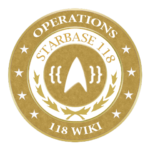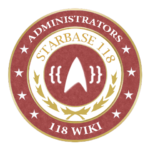Writing is an art conveyed via the images words create and feelings words instill. Samuel Coleridge called prose “words in their best order” and poetry “the best words in their best order”; and towards those definitions we should strive, no matter the type of writing we do. But what determines these best words, and how do we as writers find them?
Many writers rely heavily on the Thesaurus to find for them a saucy synonym with which they can spice up their writing. Is there anything wrong with this approach? Of course not! But the poor writer is not cognizant of what he or she is choosing, while the better writer considers the full meaning of the word he or she has chosen.
Consider, for example, this simple phrase:
::Ensign Smith walked down the corridor.::
This is a statement that has been repeated, in various forms, myriad times over the years; but suppose we wanted to make it a little more exciting, and change the way in which Ensign Smith was walking. If we consider our Thesaurus, we’ll find any number of words related to walking, from amble to march to saunter. Yet none of these words means exactly the same thing – Ensign Smith ambling down the corridor provides a very different meaning than Ensign Smith marching down the corridor.
Try it yourself: Find a Thesaurus and look up the word “walk.” Pick out a few of your favorite synonyms and try to walk across the room in that style. Did you saunter successfully? How was your stride? Did you have any difficulty traipsing?
Each of these words is similar to the word “walk,” but each differs from its brethren slightly, and this slight difference can drastically change the meaning of your phrase.
Try this tactic out in your next sim! Pick out a standard word or phrase and try making some substitutions, and see how one nuanced word can change your sim in ways you didn’t expect.


















